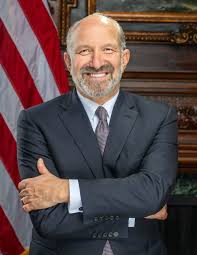
Introduction
Howard Lutnick is a name that resonates deeply within the realms of finance and business leadership. As the Chairman and CEO of Cantor Fitzgerald, he has steered the company through numerous challenges since the events of September 11, 2001, which saw the tragic loss of many employees. Lutnick’s story is not just one of survival but of resilience and innovation, making his journey noteworthy for business professionals and aspiring leaders.
Career Overview
Lutnick graduated from Haverford College in Pennsylvania with a degree in history before venturing into the financial sector. He began his career in 1983 at Cantor Fitzgerald, where he quickly made a name for himself by fostering a unique culture of hard work and employee loyalty. Under his leadership, Cantor Fitzgerald emerged as a major player on Wall Street, primarily in the fixed-income trading sector.
Challenges Faced
The most defining moment in Lutnick’s career undoubtedly came during the chaotic aftermath of the September 11 attacks. The company lost 658 employees in the tragedy. Rather than letting this monumental loss define the company, Lutnick took decisive action. He promised to take care of the families of those lost and vowed to rebuild. This decision not only showcased his commitment to the people within the company but also highlighted the importance of ethical leadership in times of crisis.
Innovations and Contributions
In addition to steering Cantor Fitzgerald back to success post-9/11, Lutnick also played a pivotal role in the expansion of financial technology. He led the launch of the company’s electronic trading platform, helping to bridge the gap between traditional trading methods and modern technology. This move has positioned Cantor Fitzgerald at the forefront of the tech-driven future of financial services.
Significance and Future Outlook
Today, Howard Lutnick is not only regarded as a survivor but also as a trailblazer who represents what strong leadership can achieve. His commitment to community, innovation, and employee welfare continues to resonate across the finance industry. As financial markets continue to evolve with a greater emphasis on technology and corporate responsibility, Lutnick’s approach stands as a model for future leaders. Businesses must adapt to changing environments, demonstrating resilience in the face of adversity while also fostering a culture that prioritizes people over profits.
Conclusion
In navigating through significant challenges and evolving alongside a rapidly changing financial landscape, Howard Lutnick serves as a significant figure whose leadership style and innovative thinking leave a lasting impact. His story not only highlights the importance of resilience in business but also reminds us of the transformative power of ethical leadership. Looking forward, Lutnick’s legacy will undoubtedly inspire future generations of business leaders to prioritize integrity, community, and innovation.



